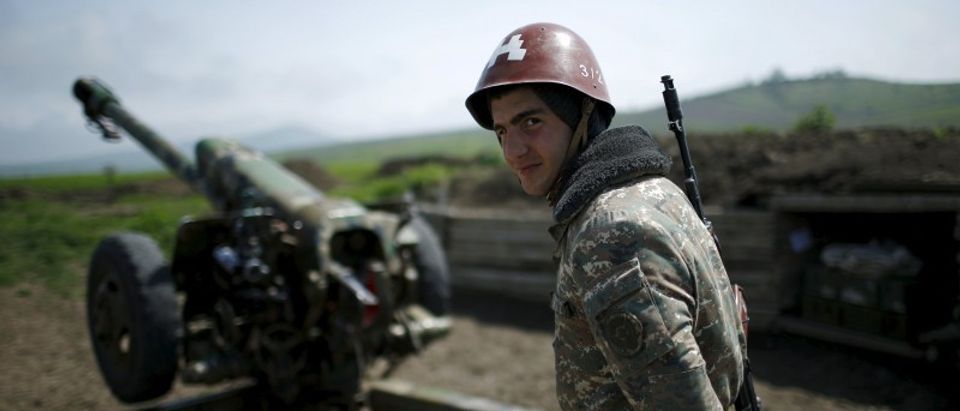With due respect to The Weekly Standard’s Philip Terzian in his recent article regarding the plight of Armenia, the issues and perspective he cites associated with the geopolitics of the South Caucasus, Eurasia and Turkey’s portion of the Middle East, are somewhat oversimplified and perhaps skewed.
Calling Armenia pro-Western and democratic is not only misleading, but it is also insulting to the many Armenians who are trying to play an active role to alter the unwise course their nation is charting toward an increasingly failed state, bereft of sovereignty and independence.
Armenia’s total dependency (political, economic and diplomatic) on Russia is not just “convenience,” but a deep misunderstanding of how to build an independent state. Armenia is nary a sovereign state and it gives away more of its independence with each successive capitulation to Russia.
Currently, the Russian military patrols Armenia’s airspace. Russia provides border protection for Armenia and most disturbingly, Armenia is the last of the former Soviet Republics to host Russian bases and troops on its soil — an agreement that was recently extended until 2044. Armenia also joined the Eurasian Customs Union, Moscow’s counter to the EU and the Collective Security Treaty Organization, Russia’s resistance to NATO. Most telling, recently, Armenian president Serj Sarkissian, announced that “all [Armenian] foreign policy will be coordinated with Russia.”
Gloomily, in terms of any growth toward independence or rapprochement with its neighbors, is the documented fact that the country is run by former and current warlords. It is a fact that current president Serj Sarkissian openly and gleefully admitted to orchestrating civilian atrocities to British journalist Tom DeWaal. The fact that Armenia remains the only post-Soviet state where almost the entire previous leadership of that country was executed in its own Parliament with absolute impunity speaks volumes to the political views of Armenia’s current leaders.
Playing the religion card is disingenuous at best and bigoted at worst. It is an attempt to divert attention from Armenia’s close and dangerous ties with Iran’s Mullahs, who long evaded sanctions with help from their friends in the Armenia government. In documents divulged by Wikileaks, we learned that Armenia was transferring weapons from European nations directly to Iran. These weapons, in turn, were transferred to terrorists fighting and killing brave American troops in Iraq. Moreover, the long history of Armenian radicals training together with Middle East’s Islamic terrorists is well-documented. Not surprisingly, in 1990’s groups of Armenian para-military gangs attacking Azerbaijanis were called “Arabo” because they were trained in Arab countries and spoke Arabic. Tellingly, we know about this because Armenian civilians, horrified by their atrocities, publicly protested.
No, Iran is not going to attack Armenia; instead Iran is much more concerned with its fellow Muslim-majority state, the staunchly secular Azerbaijan, and friend and ally of Israel and U.S. Thus, Iran has been helping Armenia in its Russian-backed war against Azerbaijan, an interesting blow to simplistic and superficial stereotypes, which seem to dominate Mr. Terzian’s article. In fact, contrary to some assertions, Armenia has much better relations with Iran than with its only Christian neighbor Georgia.
And, yes, Armenia is a threat to Turkey, NATO and the region as a whole because it is a de-facto Russian province, again, hosting Russia’s military bases, which are being reinforced by Moscow right now.
Whitewashing Armenia’s failure as a state and betting on superficial, misleading stereotypes will not help the country and its people; becoming, albeit belatedly, a truly independent nation by building peace with neighbors could. Such a path would do much to bring Armenia into one of the most prosperous and forward advancing neighborhoods on the globe — as a partner.
Jason Katz is the Principal of TSG, LLC, a strategic communications, political and policy consultancy, and the former head of public affairs and public relations for the American Jewish Committee, based in Los Angeles. He advises the Republic of Azerbaijan on media matters-though his opinions are his own.


